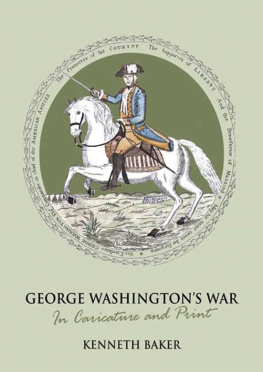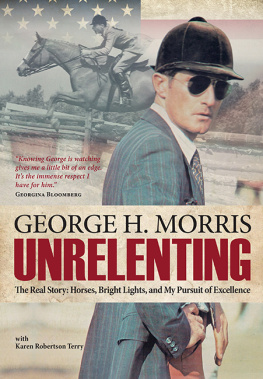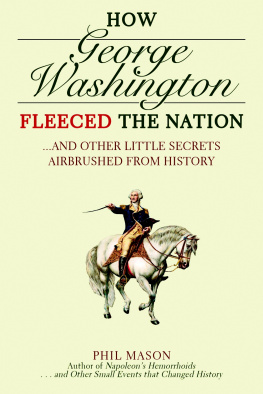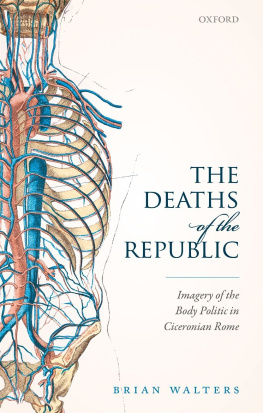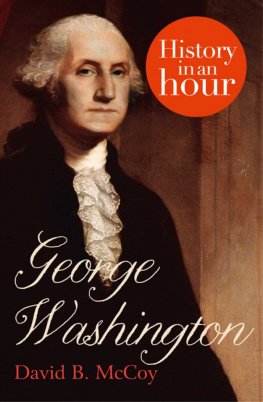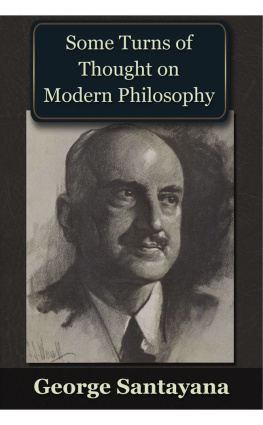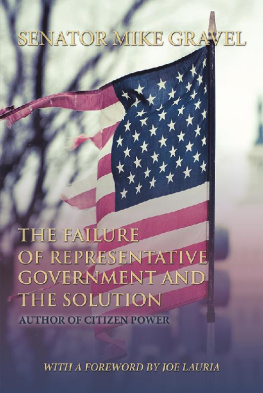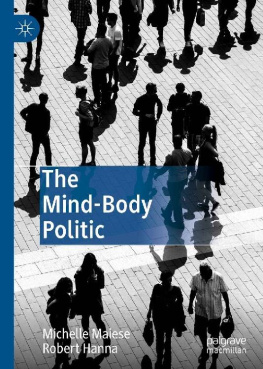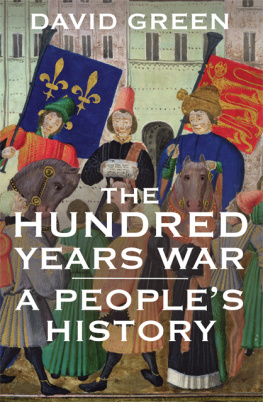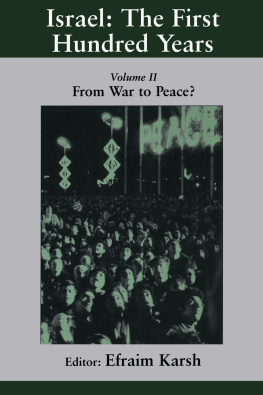Appendix
The Virginia Declaration of Rights
GEORGE MASON
A DECLARATION of RIGHTS made by the representatives of the good people of Virginia, assembled in full and free Convention; which rights do pertain to them, and their posterity, as the basis and foundation of government.
That all men are by nature equally free and independent, and have certain inherent rights, of which, when they enter into a state of society, they cannot, by any compact, deprive or divest their posterity; namely, the enjoyment of life and liberty, with the means of acquiring and possessing property, and pursuing and obtaining happiness and safety.
That all power is vested in, and consequently derived from, the people; that magistrates are their trustees and servants, and at all times amenable to them.
3. That government is, or ought to be, instituted for the common benefit, protection, and security, of the people, nation, or community, of all the various modes and forms of government that is best, which is capable of producing the greatest degree of happiness and safety, and is most effectually secured against the danger of mal-administration; and that whatever any government shall be found inadequate or contrary to these purposes, a majority of the community hath an indubitable, unalienable, and infeasible right, to reform, alter, or abolish it, in such manner as shall be judged most conducive to the publick weal.
4. That no man, or set of men, are entitled to exclusive or separate emoluments or privileges from the community, but in consideration of publick services; which, not being descendible, neither ought the offices of magistrate, legislator, or judge, to be hereditary.
5. That the legislative and executive powers of the state should be separate and distinct from the judiciary; and, that the members of the two first may be restrained from oppression, by feeling and participating the burthens of the people, they should, at fixed periods, be reduced to a private station, return into that body from which they were originally taken, and the vacancies be supplied by frequent, certain, and regular elections, in which all, or any part of the former members, to be again eligible, or ineligible, as the laws shall direct.
6. That elections of members to serve as representatives of the people, in assembly, ought to be free; and that all men, having sufficient evidence of permanent common interest with, and attachment to, the community, have the right of suffrage, and cannot be taxed or deprived of their property for publick uses without their own consent, or that of their representatives so elected, nor bound by any law to which they have not, in like manner, assented for the publick good.
7. That all power of suspending laws, or the execution of laws, by any authority without consent of the representatives of the people, is injurious to their rights, and ought not to be exercised.
8. That in all capital or criminal prosecutions a man hath a right to demand the cause and nature of his accusation, to be confronted with the accusers and witnesses, to call for evidence in his favour, and to a speedy trial by an impartial jury of his vicinage, without whose unanimous consent he cannot be found guilty, nor can he be compelled to give evidence against himself; that no man be deprived of his liberty except by the law of the land, or the judgment of his peers.
9. That excessive bail ought not to be required, nor excessive fines imposed, nor cruel and unusual punishments inflicted.
10. That general warrants, whereby any officer or messenger may be commanded to search suspected places without evidence of a fact committed, or to seize any person or persons not named, or whose offence is not particularly described and supported by evidence, are grievous and oppressive, and ought not be granted.
11. That in controversies respecting property, and in suits between man and man, the ancient trial by jury is preferable to any other, and ought to be held sacred.
12. That the freedom of the press is one of the great bulwarks of liberty, and can never be restrained but by despotick governments.
13. That a well regulated militia, composed of the body of the people, trained to arms, is the proper, natural, and safe defence of a free state; that standing armies, in time of peace, should be avoided, as dangerous to liberty; and that, in all cases, the military should be under strict subordination to, and governed by, the civil power.
14. That the people have a right to uniform government; and therefore, that no government separate from, or independent of the government of Virginia , ought to be erected or established within the limits thereof.
15. That no free government, or the blessings of liberty, can be preserved to any people but by a firm adherence to justice, moderation, temperance, frugality, and virtue, and by frequent recurrence to fundamental principles.
16. That religion, or the duty which we owe to our CREATOR, and the manner of discharging it, can be directed only by reason and conviction, not by force or violence; and therefore all men are equally entitled to the free exercise of religion, according to the dictates of conscience; and that it is the mutual duty of all to practise Christian forbearance, love, and charity, towards each other.
The Will of the People
Americans are justly proud of their tradition of representative government. In fact, America is the longest continuous representative government in existence. Ironically, it may be that, because of the two hundred uninterrupted years of the republics existence, we take it for granted, and we view its continuation as guaranteed.
Although our republic has endured for more than two hundred years, it has not always existed in its present form; it has not always represented many people who now routinely view its protections and guarantees as birthrights. The unlanded masses, women, blacks and other minorities all were for a great part of our history not represented in the American body politic. Now all of these groups, at least legally speaking, are full participants in the body politic and in the public affairs of this country.
This volume examines the development of the American notion of popular sovereignty from its colonial and revolutionary origins, from the days of its severely restricted meaning, through its progress toward inclusion of more of the people. The essays in this volume offer striking examples of how political participation in the United States gradually expanded from a closed circle of elites ultimately to include the great majority of the American people.
George R. Johnson, Jr.,
is a Professor of Law at
Howard University.
Copyright 1991 by
George Mason University Press
4400 University Drive
Fairfax, VA 22030
All rights reserved
Printed in the United States of America
British Cataloging in Publication Information Available
Distributed by arrangement with
University Publishing Associates, Inc.
4720 Boston Way
Lanham, MD 20706
3 Henrietta Street
London WC2E 8LU England
Library of Congress Cataloging-in-Publication Data
The Will of the people : the legacy of George Mason
/ edited by George R. Johnson, Jr.
p. cm. (The George Mason lectures)
1. Mason, George, 1725-1792Philosophy.
2. United StatesPolitics and government.
3. Representative government and representationUnited
StatesHistory. Consensus (Social sciences)History.
5. Pluralism (Social sciences)United StatesHistory.
6. United StatesConstitutional history.
7. Political participationUnited StatesHistory.
I. Johnson, George R., 1951- . II. Series .


